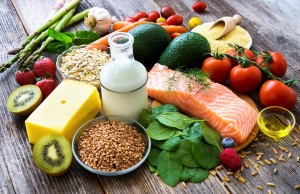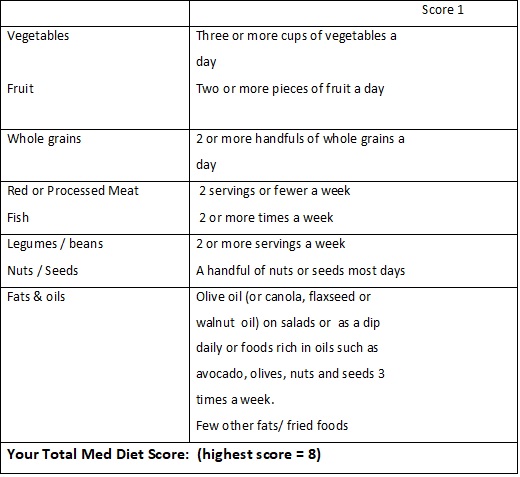When the sun shines, it can feel like Ireland has moved a little closer to the Med. You may find that you eat more salads and fruit in summertime, and the good news is that as well as being delicious, this change in eating pattern could be beneficial if you are preparing for IVF. A Mediterranean style diet may help to improve IVF success rates for women under 35 years of age who are not obese, a recent study suggests.
The researchers looked at the eating habits of 244 women undergoing their first IVF treatment at a clinic in Greece during a 3 year period. None of the women included in the study were obese and they were aged between 22 and 41 years old. The women’s diets were rated using a validated scoring tool, and then researchers looked at whether their diet score had any association with the outcome of their IVF treatment.
The MedDietScore (range 0–55) assesses how closely people follow the Mediterranean diet. Eating foods close to a traditional Mediterranean dietary pattern (non-refined cereals, fruits, vegetables, legumes, olive oil, fish and potatoes) are awarded scores 0 to 5 for never, rare, frequent, very frequent, weekly and daily consumption. Foods away from the Mediterranean pattern (red meat and processed meat products, poultry and full fat dairy products) score negatively.
Among women younger than 35 years, a 5-point increase in the MedDietScore was associated with ~2.7 times higher likelihood of achieving clinical pregnancy and live birth. This meant that the women in this study with the highest scores were more than twice as likely to have a baby than those with lowest scores.
It’s important to note that the design of the research means that we can’t predict that the benefits seen by the women in this study would translate to all other women undergoing fertility treatment, or to obese women, and the same results were not seen for women over 35 years. However the researchers suggest that following a Mediterranean style diet may help to increase the chances of a successful pregnancy for women undergoing IVF treatment.
“Adherence to the Mediterranean diet and IVF success rate among non-obese women attempting fertility” Karayianis et al Human Reproduction, Volume 33, Issue 3, 1 March 2018, Pages 494–502
If you would like to make some changes to your own diet, try this simplified version of the Mediterranean diet score. Focus on a few key changes every week to increase your score as part of your overall plan. Include a supplement of 400mcg Folic Acid and at least 10mcg Vitamin D3 from at least 3 months before any treatment.
Sinéad Curran, dietitian
merrionfertilitydietitian@gmail.com

